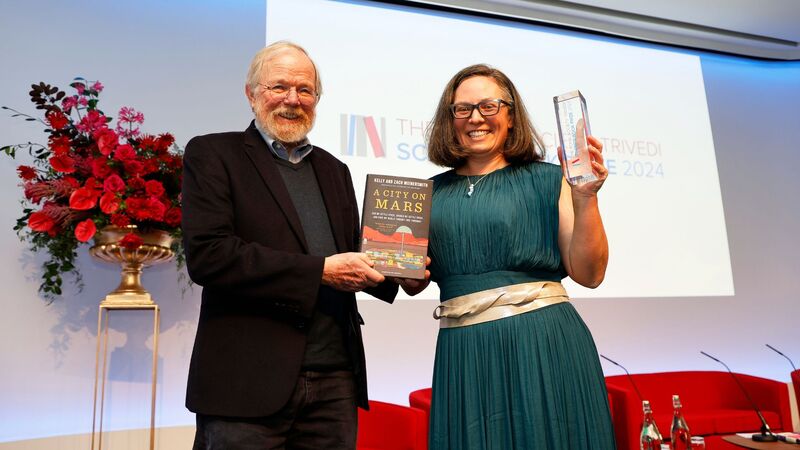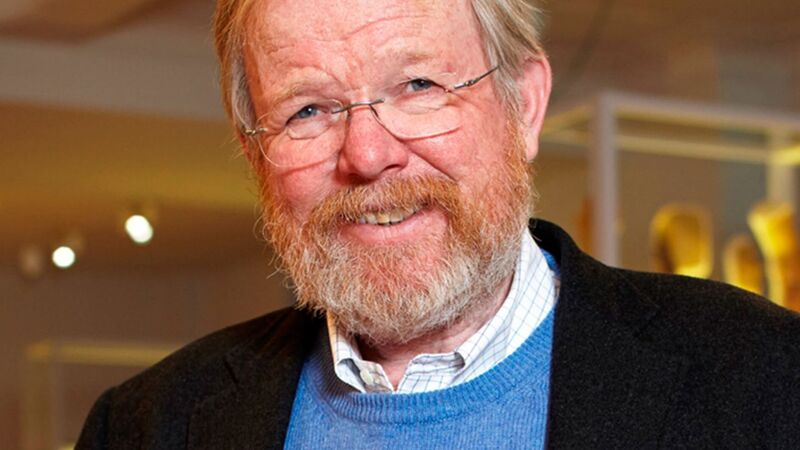You are viewing your 1 free article this month. Login to read more articles.
Dawkins tops poll of inspiring science books
The Selfish Gene by Richard Dawkins (OUP Oxford) has topped a public poll of the most inspiring science books of all time, commissioned by the Royal Society to mark the 30th year of its Royal Society Science Book Prize.
It is followed by Bill Bryson’s book A Short History of Nearly Everything (Black Swan) in second place, and Charles Darwin’s 1859 classic On the Origin of Species (Oxford World Classics) in third place.
Participants in the poll called The Selfish Gene a “masterpiece” and Dawkins an “excellent communicator”, with many commenting on how the book had changed their perspective of the world and the way they were trained to see science.
The 11 books featured in the poll were selected by Keith Moore, head of library at the Royal Society, and are "widely recognised for their impact on the general public as well as the science community", according to the society. Also included were A Brief History of Time by Stephen Hawking (Bantam), The Immortal Life of Henrietta Lacks by Rebecca Skloot (Pan) and Silent Spring by Rachel Carson (Penguin Modern Classics).
Moore said it was "fantastic" to see such a "diverse spread" of science books being championed. "This shows just how healthy the field of popular science writing is. We have also enjoyed the personal stories of readers – how particular books have remained with them long after the final page was turned – to enrich and inspire lives, careers and thought", he said.
He added: “I hope that the writers of these books feel just a little proud of what they have achieved. We at the Royal Society are delighted to be celebrating 30 years of championing popular science books through the Science Book Prize. Science writing at its best is rich, vivid and as compelling as any other form of literature. I hope that people who may not think that science is for them will pick up one of these titles and start a new journey in culture.”
The results of the poll were announced at a 30th anniversary celebration at the British Library, where early editions of Darwin’s On the Origin of Species and Newton’s Principia (Snowball Publishing) were on display. A panel, hosted by Dara O’Briain and featuring leading science commentators Dame Jocelyn Bell Burnell, Vivienne Parry and Mark Miodownik, discussed the art of science writing.
The Royal Society Insight Investment Science Book Prize celebrates outstanding popular science books from around the world and is open to authors of science books written for a non-specialist audience. Over the decades, it has championed writers such as Stephen Hawking, Jared Diamond, Stephen Jay Gould and Bill Bryson. Bailey's Prize-winning novelist and games writer, Naomi Alderman, will join the judging panel for this year’s Royal Society Insight Investment Science Book Prize, the “Booker Prize of Science Writing” (BBC Radio 4).
The shortlist for the 2017 Royal Society Insight Investment Science Book Prize will be announced on Thursday 3rd August, and the winner will be revealed at an evening ceremony on Tuesday 19th September.
The full list of books in the poll (in order of publication):
· The Natural History of Selbourne by Gilbert White (OUP Oxford, 1789)
· On the Origin of Species by Charles Darwin (Oxford World Classics, 1859)
· Married Love by Marie Carmichael Stopes (1918)
· The Science of Life by H.G. Wells, Julian Huxley and G.P. Wells (Cassel and Company 1920)
· Silent Spring by Rachel Carson (Penguin Modern Classics, 1962)
· The Selfish Gene by Richard Dawkins (OUP Oxford, 1976)
· A Brief History of Time by Stephen Hawking (Bantam, 1988)
· Fermat’s Last Theorem by Simon Singh (Fourth Estat1997)
· A Short History of Nearly Everything by Bill Bryson (Black Swan, 2003)
· Bad Science by Ben Goldacre (Harper Perrenial, 2009)
· The Immortal Life of Henrietta Lacks by Rebecca Skloot (Pan, 2010)


















